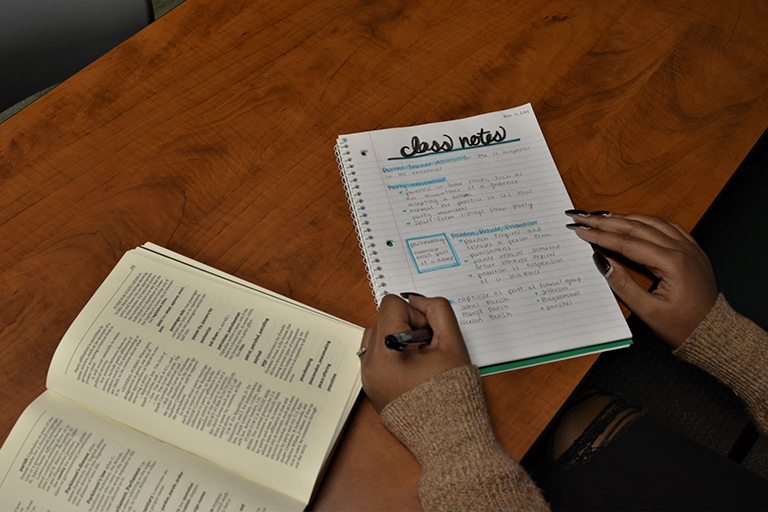The art of taking notes sounds simple enough, yet most college students don't understand how to take notes in an effective manner. Taking notes during your classes will ensure success on future assignments and exams. However, it can be difficult to know where to start in the note taking process. Below are strategies to take notes in college like a pro.
Spend time reading before class.
Taking notes on the content of your class will be much easier if you have background knowledge of the information prior to hearing it from your professor. Before the lecture, read the assigned book and web content listed in your syllabus to take helpful notes.
Stay organized.
Keep your notes and papers for each course in an organized location. Make sure to start each lecture on a new page with the date on it. After class, add the header or topic of the lecture to help you find content for assignments or exams later.
Leave yourself room.
Your notes should be legible and understandable to you. However, this may be impossible if you are writing cramped messages in a small notebook. Save room on each page to add more information from the reading or connections to other ideas from the class.
Listen to the lecture.
It is impossible to take notes of everything your professors say or show. Students can spend too much time taking notes and forget to listen to the lesson. As you write, pay attention to the material and how it connects to relevant information in the course.
Write your questions.
As questions arise, write them down in your notes to ask your professor or research later. Asking questions will keep you engaged in note taking as you allow your brain to think about the content. This method can also help you be aware of what you don't understand, so you can focus on those areas when studying.
Create a structure.
Find a structure of note taking that works for you. Whether it's a mind map, an outline or a chart, there is no wrong way to take notes. Depending on your learning style, you should find the note taking method that fits you. Spend time experimenting with different techniques to determine what you like best.
Devote time to review.
When your class is over, spend time reading your notes and adding your thoughts. Reviewing your notes will help you comprehend and remember the information to eliminate cramming content before exams. Reviewing your notes will help you understand and retain the information to eliminate cramming content before exams.



